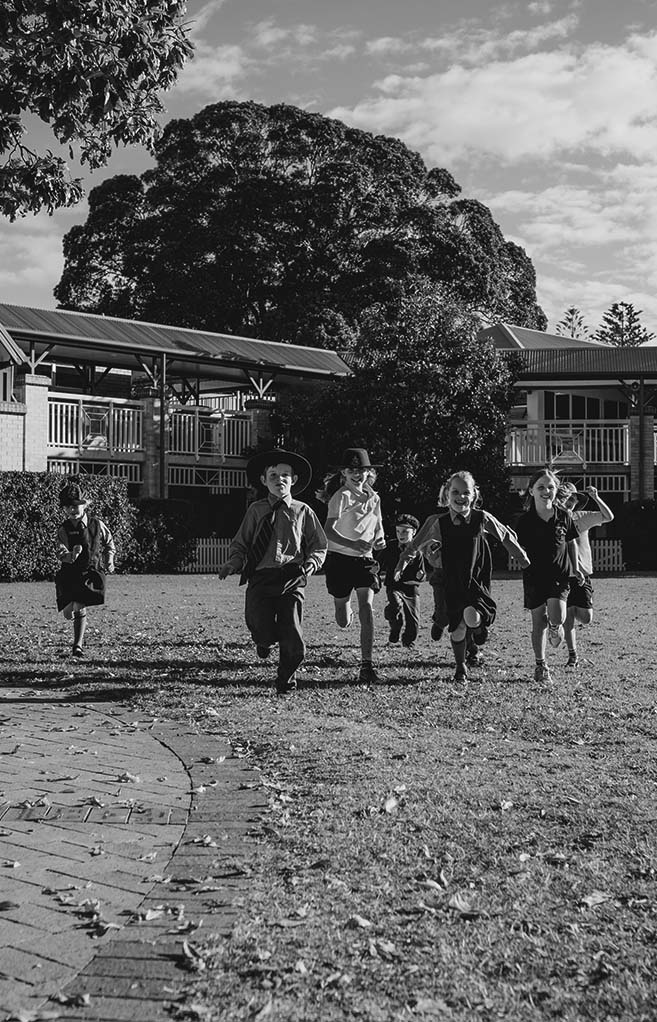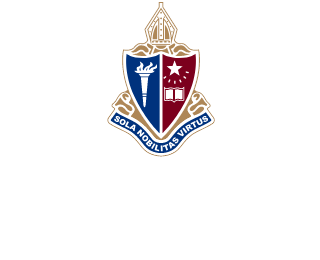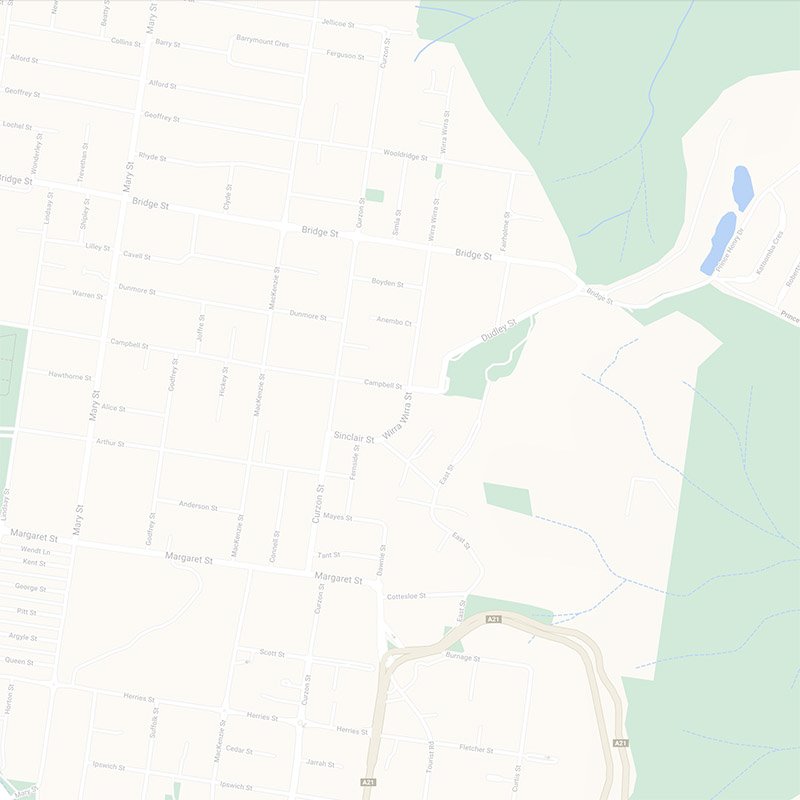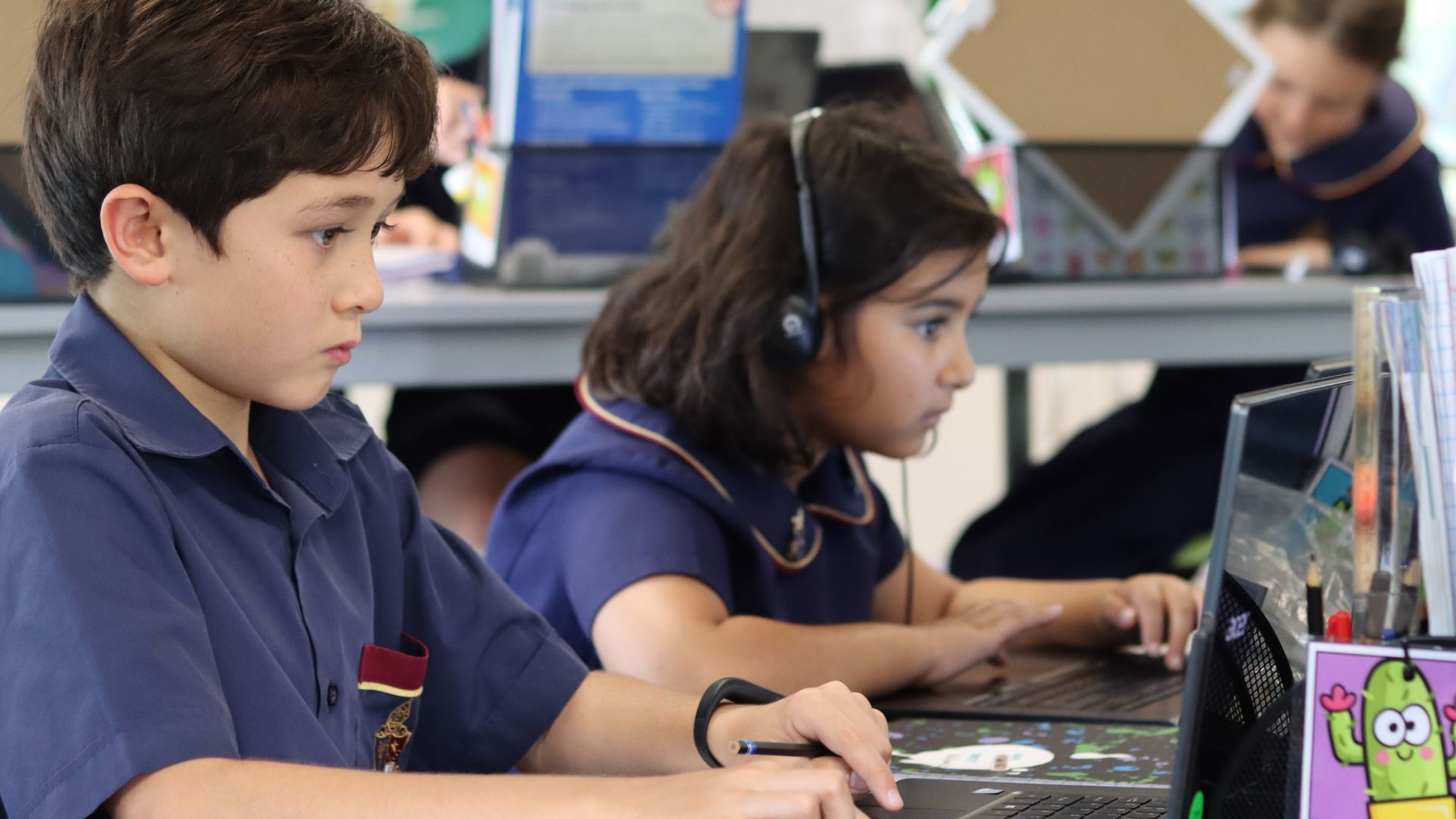





Our school’s focus on each individual ensures comprehensive and stimulating educational programs are offered to all students. No matter where a student begins, we will help them to improve at a rate that outperforms the national average (according to NAPLAN results).
Within the Primary Years, learning programs and common teaching practices are designed and delivered to reflect differing developmental stages of the students. The Head of Primary Years works closely with teaching staff to develop and implement learning programs that are reflective of current education trends and quality instruction.
At Toowoomba Anglican School we recognise that students have diverse learning needs, and our classroom teachers are skilled at differentiating their teaching practice to meet these individual needs. In addition to this, we offer the Extension and Enrichment Program for high-potential students.
Based upon the Australian Curriculum, the Primary curriculum at Toowoomba Anglican School consists of sequenced learning through relevant and contextually based units of work in each year level. These units are supported by a Pedagogical Framework and will continue to adapt to any new evidence that may support differing practices. Together, the Curriculum Framework and the Pedagogical Framework form the basis of all teaching and learning within the Primary Years.
Our school’s focus on each individual ensures comprehensive and stimulating educational programs are offered to all students. Currently the Primary Years encompasses Kindergarten (3 - 4 ½ year olds) to Year 6 (11-12 year olds). Within the Primary Years, learning programs are designed and delivered to reflect differing developmental stages of the students. Our Head of Primary Years works closely with teaching staff to develop and implement learning programs that are reflective of current education trends and quality instruction. Our staff align their practices to a researched Pedagogical Framework and a clear Curriculum Framework to guide their teaching and learning. The Head of Primary liaises closely with teachers to investigate outcomes data and coaching procedures to ensure our practice has a clear improvement agenda. This Teaching and Learning cycle provides clear direction and purpose around the educational programs delivered to our students.
Our curriculum is organised around the key learning areas nominated by the Australian Curriculum. It is enhanced by other interest based programs to make the learning experience meaningful, stimulating and linked to other knowledge, attitudes and skills.
Key subject areas include:
Our curriculum, in alignment with the Australian Curriculum, is responsive to the needs of modern learners and caters to individual needs. A skilled and expert Learning Enhancement Centre team, supports teachers to provide differentiated and individualised programs to cater to these individual needs, whether through learning support or extension and enrichment activities.
Our contemporary, innovative and holistic curriculum is underpinned by the dedication of our teachers to deliver the most successful learning outcomes for our students. To provide an innovative curriculum, a highly skilled workforce is required and at Toowoomba Anglican School, our teachers are constantly challenged to hone their craft to continue to be the best in the nation.
Providing teachers with professional growth and development strategies and opportunities is vital to improving teacher ability. Toowoomba Anglican School is focused on effective, evidence-based performance and development processes that contribute to the growth and development of every teacher.
Teachers are supported by a Pedagogical Framework which describes the way in which teachers plan and develop their teaching based on best practice research. All teachers use this framework to ensure innovative and research based teaching practices are implemented and ultimately, enhanced learning outcomes for all our students are achieved.
Built on the school’s overarching principle that Every Child is Known, learning programs reflect a diversity of needs and capabilities in our student body. Informed by observation and by evidence, Toowoomba Anglican School teachers work within classrooms and with the support of the Learning Enhancement and Academic Extension Co-ordinators to ensure the best possible learning environment and programming occurs to meet these diverse needs.
Built on the school’s overarching principle that Every Child is Known, learning programs reflect a diversity of needs and capabilities in our student body. Informed by observation and by evidence, Toowoomba Anglican School teachers work within classrooms and with the support of the Learning Enhancement Coordinator to ensure the best possible learning environment and programming occurs to meet these diverse needs. TAS does not have a specific Special Education Unit but rather supports the academic development of students through employing high calibre teachers and support staff who understand the learning needs of their students.
Extension opportunities are provided for the more academically able students through the Learning Enhancement Centre and community wide opportunities that students are encouraged to participate in. These include the Da Vinci Decathlon, Maths Competitions, Chess experiences and USQ Days of Excellence. Parents are partners in the academic progression of more able students and the school provides opportunities for both in-class and external acceleration.
Our approach to initial reading instruction follows the InitiaLit program from Kindy through to Year 2. We are proud to have been an early adopter of InitiaLit, a program now gathering momentum across the country. Parents in our school who’s children have been exposed to this approach can see that the difference is palpable.
In terms of our own data, core testing shows systemic progress and improvement. Previously, up to 35% of students would take part in a literacy intervention program in Year 1 (our bid to ensure students all reach a minimum standard as early as possible). In 2019, after the first year of InitiaLit adoption, only 15% of Year 1 students took part in the intervention program.
There has been a recent call to address the way that schools approach initial reading instruction and we are proud that Toowoomba Anglican School is at the forefront of this movement. For decades, the predominant approach to early instruction has been based on derivatives of the 'whole language' or 'balanced literacy' ideology; a belief that learning to read is a natural process, like learning to speak, and that by exposing young children to books and literature, they will learn to read with very little explicit instruction about how the writing system is systematically mapped to spoken language. What we know as a society - anecdotally and due to research - is that a number of young people (and now adults) experiencing difficulty acquiring literacy skills with this method of instruction can easily slip through the net.
We believe it is vital to ensure that our students understand that the English written language system is a code for spoken language, and have explicit knowledge of how it works - that each of the 26 letters of the alphabet work individually and in combinations to write down the 44 speech sounds in Australian English. It's complicated for children, but best practice in early reading instruction demystifies this process.
Students are never encouraged to look at pictures for clues about unknown words or skip words; their knowledge of the written system allows them to systematically decode words by sounding them out. Instructional reading material is carefully designed with text using only the code skills that they have learnt to date, allowing them to practise and refine their reliable decoding skills, and gradually map them to automatic memory.